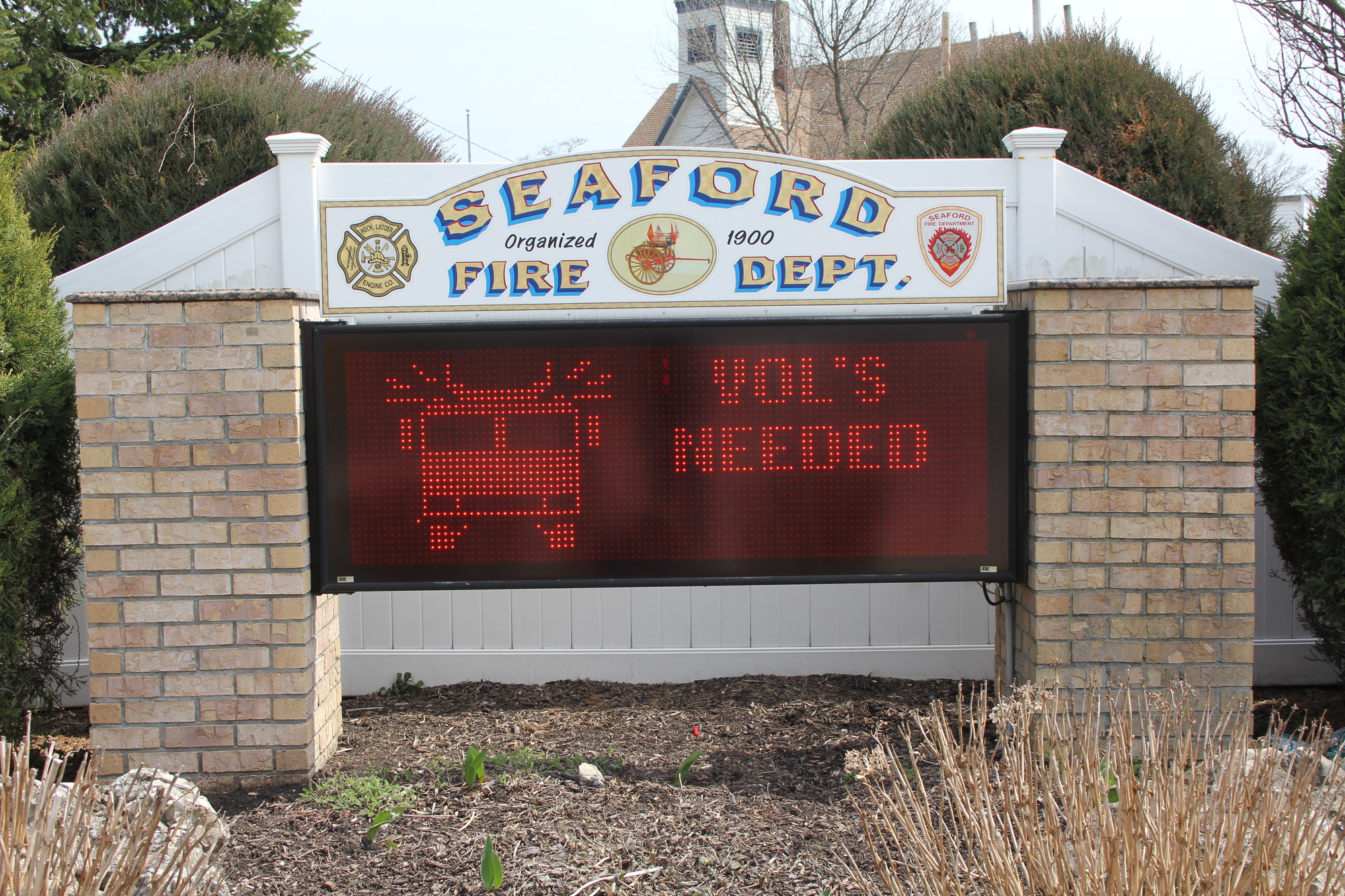Seaford Fire District accepts audit's findings
State comptroller says service award program was not properly administered
The Seaford Fire District did not properly administer a benefit program for volunteer firefighters, according to a report recently released by State Comptroller Thomas DiNapoli.
The comptroller’s office conducted the review from Jan. 1, 2013, through March 31, 2014. It found that some volunteers were given too few credits, and others too many, but that neither members of the department nor taxpayers were cheated.
Fire District officials say they accept the report’s finding and are already implementing changes. “We don’t dispute the fact that the program policies need to be corrected,” said Silvio Bellissimo, chairman of the Board of Fire Commissioners.
The district’s Length of Service Award Program provides firefighters with a monthly benefit that accrues similar to a pension. Volunteers receive $20 per month for each year of service, and can earn a maximum monthly payment of $800. The purpose of the program is to recruit and retain firefighters for the all-volunteer department.
As long as they have five years in the department, volunteers start receiving payments once they turn 60, but at that point can no longer accrue additional service time as part of the program, according to Bellissimo, even if they remain active with the department.
The fire district is led by an elected board of five commissioners, and oversees the budget for the Seaford Fire Department. The district is required to adopt standards and procedures for its service award program, which has 73 participants.
Officials from DiNapoli’s office reviewed the records for 23 of the participants and found that none received the correct amount of points. Firefighters are eligible to receive points for going on calls, serving in an elected or appointed position, attending certain meetings, taking part in drills, teaching fire prevention courses and other activities. Points are also awarded for disabilities that result from line-of-duty injuries. Accumulating 50 points in a year gives a volunteer a year of service credit.
General Municipal Law mandates that a fire district award a volunteer 25 points for responding to the minimum number of fire calls in a year — 10 percent of the total calls — and another 25 points for responding to the minimum number of emergency medical services calls — also 10 percent of the total.
According to the audit, the district awarded 25 points to volunteers who responded to 10 percent of all department calls, rather than 25 points each for fire and EMS. Twenty of the 23 participants reviewed received only half the points they were entitled to, the report states.
For training and drills, 14 of the 23 were shorted points, and eight should have earned the maximum of 25.
The audit also concluded that the Fire District awarded points where it wasn’t supposed to. The district did not include sleep-ins, when firefighters stay overnight at the firehouse, or stand-bys, when they respond to cover another fire department, as an approved activity in its point system. Yet the audit found that 17 of the 23 reviewed participants received at least one point for stand-bys, for a total of 59 points.
According to the audit, if stand-bys were an approved activity and points were awarded according to General Municipal Law, only 14 firefighters would have been eligible for a combined total of 27 points. “Because the district awarded points for this activity that is not eligible under the district’s adopted point system,” the audit states, “volunteers may have received service credit to which they were not entitled.”
The district did not include the teaching of fire-prevention courses as an approved way to earn points, either, yet 12 volunteers were given credit, according to the audit. And four elected officers in the department did not receive points they were entitled to for holding those positions.
Bellissimo explained that even those who were shorted points in one activity made them up in another.
“In actuality, every member made their 50 points,” he said. “At the end of the year, nobody missed their credit because of this bookkeeping error.”
He also said that taxpayers were not affected. The fire district’s 2013 contribution to the service award program totaled $113,300, out of a yearly operating budget of $1.8 million.
The district has three part-time employees who are also volunteer firefighters. Law prohibits them from earning points for any Fire Department activities that take place during working hours, including responding to calls. The district did not have a system in place to prevent the earning of points during this time. However, the audit’s review found that the three still responded to the minimum number of calls outside work hours.
Bellissimo said that the employees came off the clock when they responded to calls during work hours.
The audit recommended that the Board of Fire Commissioners review and amend its point system to make it consistent with General Municipal Law and review all points earned on an annual basis. It also suggested better tracking and reporting of points earned.
Bellissimo said that the service award program had been in place for at least 20 years, and that he did not know whether it was being administered improperly because it was set up incorrectly by previous commissioners, or because the state made a change at some point that was never implemented in Seaford.
“We thought all these years that we were doing it correctly, and we weren’t,” he said. “They brought it to our attention, and we’re correcting it.”
He added that the state found no issues of financial mismanagement in the district, which serves approximately 12,000 residents.






